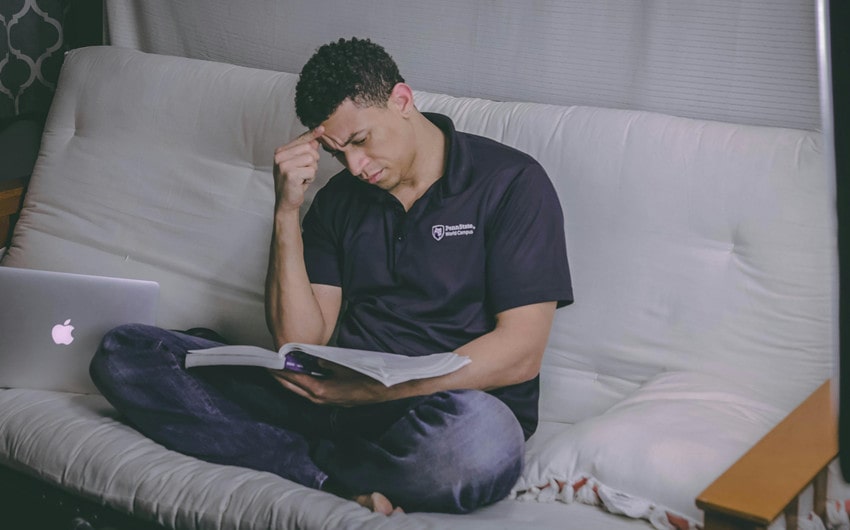Learning to Question the Obvious in Everyday Life for Growth
We go through most days on autopilot—brushing our teeth a certain way, answering emails the usual way, saying “I’m fine” without thinking twice. But what if some of these everyday habits and beliefs aren’t as set in stone as they seem?
Learning to question the obvious in everyday life isn’t about overthinking everything—it’s about slowing down just enough to notice what we usually overlook. Sometimes, the smallest shift in awareness can lead to surprising insights, new ideas, or even a better way to live.
The Nature of the “Obvious”

What we call “obvious” is usually just what we’re used to. It’s the collection of thoughts, behaviors, routines, and beliefs we rarely pause to examine. These aren’t always facts or truths—they’re often assumptions shaped by culture, family, environment, and habit. Over time, they become so familiar that we stop noticing them altogether.
For example, we might believe there’s a “right” way to load the dishwasher, answer a phone call, or define success—just because that’s how it’s always been done around us. These beliefs quietly guide our choices, even if they don’t always serve us. The “obvious” becomes a mental shortcut, saving time and effort. But sometimes, those shortcuts also limit us.
Recognizing the nature of the obvious is the first step toward seeing beyond it. It’s about realizing that many things we take for granted are just one way of seeing the world—not the only way.
Why We Rarely Question the Obvious
There’s a reason we don’t often stop to challenge the everyday. Life moves fast, and sticking to what we know feels easier. Questioning takes effort, time, and sometimes even courage. It’s much more comfortable to trust familiar answers than to sit with uncertainty or risk being wrong.
Another reason is that we often don’t see our assumptions—they’re like wallpaper we’ve stared at for so long we forget it’s there. The brain loves efficiency, so it builds routines and beliefs to avoid decision overload. This makes sense for daily survival, but it also means we can end up blindly following ideas that no longer fit who we are or where we want to go.
We also worry about standing out or being judged. Challenging the obvious can make us feel out of place—like the only one asking “why?” when everyone else just nods along. But in truth, those are the moments that often lead to the biggest breakthroughs.
Benefits of Questioning Everyday Assumptions

At first glance, questioning your daily assumptions might seem like extra mental work—but the rewards can be surprising and far-reaching. One of the biggest benefits is gaining clarity. When you pause to ask why you do something a certain way, you start to see what’s actually helping you—and what’s just habit. This can lead to smarter decisions, healthier routines, and more intentional living.
Questioning also sparks creativity. Many great ideas come from people who dared to challenge what others accepted as “just the way things are.” Think of inventions, new business models, or even social changes—all born from someone asking, “Does it have to be this way?”
On a personal level, questioning can lead to self-growth. It helps you better understand your values, motivations, and blind spots. It can improve relationships too, because you’re more open to other viewpoints when you realize your own thinking isn’t the only valid one.
In short, questioning assumptions makes life less automatic and more alive. It puts you in the driver’s seat instead of just going along for the ride.
How to Start Noticing the “Invisible” Assumptions
Invisible assumptions are the quiet beliefs and routines that shape our lives without us even realizing it. The good news? You don’t need to overhaul your life to start noticing them—you just need to bring a little more awareness into the everyday. Here’s how to begin.
1. Ask “Why?”—More Than Once
Start with something small, like a daily task or decision. Then ask yourself: Why do I do it this way? Don’t stop at the first answer. Keep asking “why” until you get to the core reason. Often, you’ll uncover a belief or habit you didn’t realize was guiding you.
Example: You always work late. Why? Because there’s a lot to do. Why? Because you take on too much. Why? Because you feel guilty saying no. Aha—that’s the real assumption.
2. Notice Moments of Friction
Pay attention to when you feel annoyed, stuck, or uncomfortable. These are clues that an invisible assumption might be at play. Maybe you get irritated when someone texts instead of calls. That’s a great moment to pause and ask, What am I expecting, and why?
These emotional reactions often point to “rules” we’ve silently adopted without questioning them. When something feels “off,” ask yourself what belief might be behind that reaction.
3. Tune In to Your Everyday Language
The words you use out loud or in your head can reveal hidden assumptions. Phrases like “I have to,” “That’s just how I am,” or “That would never work” often come from default thinking.
Next time you catch yourself saying something like this, stop and ask: Is that really true? Or just something I’ve accepted without thinking?
4. Talk to People Who See Things Differently
One of the fastest ways to notice your own assumptions is to interact with people from different backgrounds, cultures, or industries. What seems normal to you might be surprising—or even strange—to someone else.
These conversations don’t need to be debates. Just listening with curiosity can help you see how much of your thinking is shaped by your environment rather than by objective truth.
5. Create Space to Reflect
When life is nonstop, it’s hard to notice anything subtle. Give yourself small pockets of quiet—on a walk, during a commute, or while journaling. Ask yourself simple questions like: What did I assume today? or Did anything surprise or frustrate me? Why?
These moments of reflection help you catch patterns you’d otherwise miss. Over time, you’ll start spotting assumptions more naturally.
By taking small steps like these, you can start uncovering the invisible threads that quietly shape your days. Once you notice them, you get to decide which ones still make sense—and which ones you’re ready to rewrite.
Everyday Scenarios Where Questioning Helps

You don’t have to wait for a life crisis or major decision to start questioning the obvious. Often, the most overlooked assumptions show up in your daily routines, conversations, and work habits. Let’s look at a few areas where gentle curiosity can make a big difference.
1. Workplace Habits That Don’t Make Sense Anymore
Many of us follow routines at work simply because “that’s how it’s always been done.” Maybe it’s the standing Monday morning meeting, the long report no one reads, or the way your team handles feedback. These practices might have made sense once, but do they still?
Try asking: Is this the most effective way to do this? or Is there a simpler, kinder, or smarter option? You might find that a small shift—like shortening meetings or rethinking how tasks are assigned—can improve both productivity and morale.
2. Personal Routines on Autopilot
Think about your mornings, evenings, or even how you eat lunch. Do you scroll your phone while eating? Start the day stressed and rushed? Many of these habits feel normal, but that doesn’t mean they’re helpful.
By pausing to ask Why do I do it this way? or How does this routine actually make me feel?, you open the door to creating better, more intentional habits—ones that serve your current goals instead of outdated defaults.
3. Social Norms That Deserve a Second Look
From how we greet people to how we talk about feelings, many social habits go unquestioned. Maybe you always say “yes” to invitations out of politeness, or you avoid honest conversations to keep the peace.
Questioning these norms doesn’t mean becoming rude or rebellious—it just means asking if there’s a better, truer way to connect. Sometimes, being honest or setting a boundary creates more authentic relationships than following expected scripts.
4. Redefining Success and Happiness
We often inherit ideas about what it means to live a “good life.” It might be earning a certain salary, owning a house, or staying busy. But those definitions don’t fit everyone—and they can quietly steer your decisions in ways that leave you unfulfilled.
Ask yourself: What does success mean to me, personally? Whose definition am I living by? These questions can feel uncomfortable at first, but they lead to more meaningful choices that reflect your true priorities—not someone else’s.
The Balance: Not Everything Needs to Be Questioned
While curiosity is powerful, it’s also important to know when to let things be. Not every assumption needs to be challenged, and not every habit needs to be examined. If we questioned everything, all the time, we’d probably feel overwhelmed and stuck in analysis mode.
Some routines exist for a reason—they save time, reduce stress, or bring comfort. It’s okay to keep doing what works for you without constantly picking it apart. The key is knowing the difference between helpful routines and ones that are just running on autopilot without purpose.
Questioning the obvious isn’t about being skeptical of everything or rejecting all tradition. It’s about creating space to think for yourself, to make conscious choices instead of inherited ones. Like most things, it’s about balance.
You don’t need to become a full-time philosopher to live more intentionally. Even one small question—asked at the right moment—can shift your perspective in a meaningful way.






